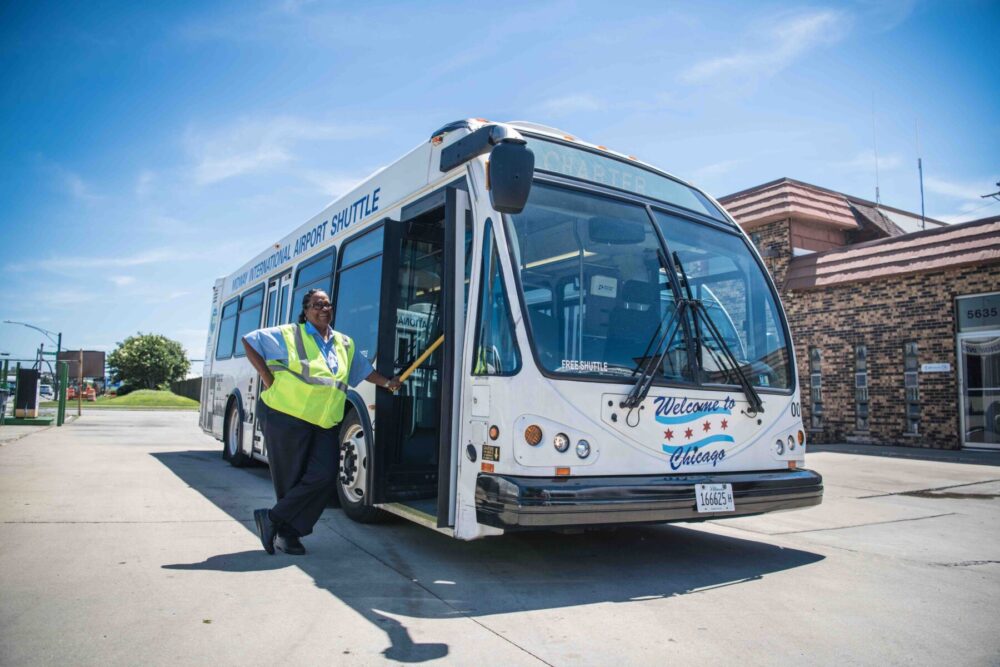Biodiesel for Sustainable Transportation
Even while electrifying part of its fleet, a Chicago-area transportation contractor continues to rely on biodiesel as its go-to fuel option for sustainable operations. Cook-Illinois Corporation of Oak Brook, Illinois, values cleaner-burning biodiesel for its lower emissions, especially with its vehicles that transport children and spend a lot of time idling.

Cook-Illinois is the largest family-owned-and-operated school bus contractor in the United States. The company services Chicago-area customers with 18 school bus subsidiaries and operates passenger shuttles at Midway International Airport. The airport shuttles run on B20 biodiesel year-round, while school buses run on biodiesel blends of B11 to B20 from March to November.
“The nice thing about biodiesel is that it works in any diesel vehicle. It’s easy to switch from regular diesel fuel to biodiesel and back to regular diesel without any engine modifications or conversions needed,” says John Benish, Jr., president of Cook-Illinois. “We just fill up the tank and go.”
Looking to try electric vehicle options, the company used a government subsidy to purchase two electric buses in April 2019. With the coronavirus-shortened school year in 2020, the vehicles are still under evaluation, Benish says.

“We will continue evaluate them closely. We need to consider how long it takes to recharge the buses and also factor in the $15,000 cost for the charging system.”
Although electric vehicles promise zero emissions, Benish plans to look at their overall impact on the environment. “I want to know the actual carbon footprint for a full-size electric bus because it’s obviously big and heavy. It takes a lot of coal to produce electricity. We are going to look at how that green footprint compares to biodiesel and other options,” he says.

Meanwhile biodiesel remains proven and reliable in everyday operations at Cook-Illinois. Now entering the fourteenth year running school buses on biodiesel, Benish says the fuel is efficient and cost-effective. “We are a private business so everything we do has to make financial sense,” he says.
In the near future, Cook-Illinois hopes to take its biodiesel program a step further. The company has applied for a grant to pilot use of B100 in five school buses. Special bi-fuel technology will allow buses to start on diesel and then switch to 100 percent biodiesel after warming up.
“We think it will be 20 or 30 years before electricity becomes a realistic alternative to liquid fuels,” says Benish. “In the meantime, we want to continue to investigate ways to reduce our emissions and use every dollar efficiently, so we are excited about the potential B100 pilot project.”
Cook-Illinois is a member of the B20 Club, a partnership between the American Lung Association and the Illinois Soybean Association that recognizes Illinois fleets committed to biodiesel blends of B20 and higher. Find more about the B20 Club here.



